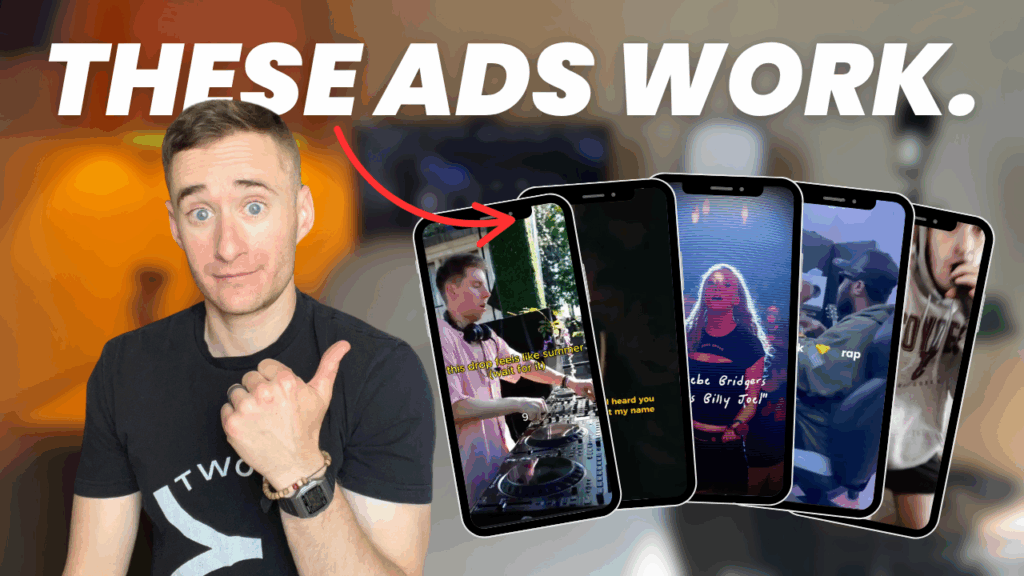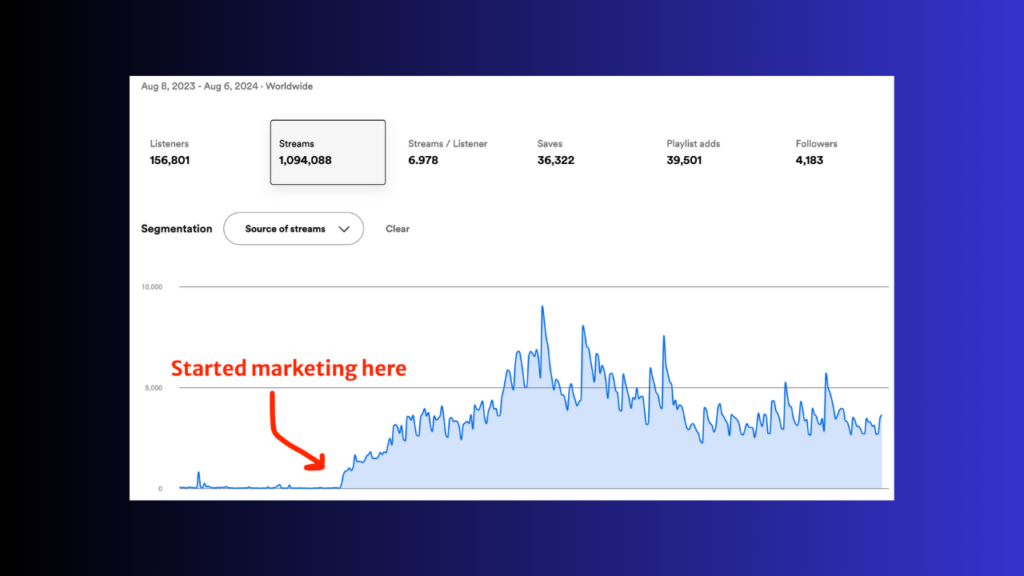All right, fine:
I’ll write about my ethical stance on Spotify.
I don’t particularly want to; ethics is the sort of topic that inclines itself toward being preached rather than discussed, and I don’t fancy myself a good (or credible) preacher. Also, there are very few hills on which I’d be willing to die, and none of them are on the internet.
But despite the fact that Tom wrote an absolute gem of an essay on navigating Spotify’s moral morass last week, I’m going to wade through it again today, for two reasons:
- Several people have asked me to. (Granted, this was before Tom’s essay. But the original questions were addressed to me, so I feel kinda obligated to respond myself.)
- I can’t stop thinking about it.
So yeah, I’ll do it. Let’s crack open this can of worms one more time.
I’ll start with this:
Spotify is pretty clearly corrupt.
Mark, the thoughtful longtime reader whose question was featured in last week’s mailbag, specified three examples of badness / corruption: Daniel Ek’s AI defense investments, a user agreement that reads like a cult application, and ongoing ICE recruitment ads.
Just for fun, I’ll add a few points of my own to the pile:
- Spotify pays $0.003 per stream, which is the worst rate of any major DSP (and only seems to be getting worse).
- Spotify is partly owned by major labels, which, come on, obviously makes them more than a little creepy.
- Spotify promotes fake artists for its own financial benefit. (This one riles me.)
- The whole Discovery Mode system is basically payola. (This one riles me even more and I can’t believe more people don’t talk about it.)
And I could keep going. Earlier this year I read Liz Pelly’s Mood Machine¹, which makes the 236-page case that Spotify is the absolute devil, and believe me, there’s no lack of evidence.
This raises the obvious question, one that was sort of implied by Mark:
Shouldn’t you quit Spotify?
Maybe. To quote Tom: “An artist is armed with their skill and their conscience, and no two artists are alike.” Tegan and Sara aside, I think he’s basically right, so I’ll stop dancing around the issue and put it in the imperative:
If your conscience is leading you to quit Spotify, then please, do it.
(Here’s an article to help.)
Over the rest of this newsletter, I’m going to tell you why my conscience, personally, has not led me to quit Spotify – and why, even in light of everything above, I don’t lose sleep at night making Spotify marketing the bread and butter of my business. Too often, at least.
I’ll walk you through my thinking, then leave it to you to determine whether I’m a hypocrite or, like Billie, a bad guy. But here we go. First…
I think adjudicating the ethicality of any Whole Thing is really hard.
At the risk of opening some big other can of worms, let’s take one of Mark’s points as an example.
Is it conclusively bad that Daniel Ek invested in Helsing, an AI military tech company?
The actual phrase AI military tech company fills me with a scared sort of anger, so I lean hard toward yes. But on the other hand, here’s a nuanced perspective from a thoughtful person in my membership:
“As a German that totally is against war but at the same time is realistic… I am somewhat split. Is Helsing [a German company] even a bad thing? As a European that fears the spreading of the Russian attack on the Ukraine, I am asking myself if technology that is built in Europe to defend Europe isn’t somewhat necessary in our days.”
When you look closely at any moral question, even a question that involves the words AI military tech, it quickly becomes multi-faceted and slippery.
I am not saying this to justify Helsing. Nor am I saying it so that I can just throw up my hands and sweep the whole question of morality under the rug. I’m saying it because I think that to really, genuinely answer a moral question – to truly get at Truth – you need to be honest about the difficulty of doing so.
To label some Thing as ultimately Good or Bad is a herculean task, and I mean that almost literally; to do such labeling you need the strength of gods. But even so…
I think making moral choices is necessary.
I mean, obviously.
People can’t avoid moral choices. It might even be that a Thing with the capacity for moral choices is what a person is.
Thankfully, very few of us are called to conclusively say whether any Whole Thing – Spotify, or the United States of America, or high fructose corn syrup – is Good or Bad. But each of us must answer, at each moment, a much smaller, sharper question:
“What is the right thing for me to do now?”
In my experience, the answer to this question is fortunately almost always clear and unfortunately very rarely comfortable.
To put it in concrete terms: I don’t know if Spotify is Good or Bad, but I do know that I promised one of my clients I would send them a marketing report today, and if I don’t send them that report but instead spend the next four hours watching YouTube videos about the atrocious state of the Steelers’ offense, then that, like the Steelers’ offense, would be Bad. Also in the report I’d like to gloss over some of the underperforming ads we’ve run in their account and make our work seem as good as possible, but I know that that, too, would be Bad.
I’m tempted to leave the whole topic here and declare morality solved. But okay, this is still a cop out.
Because (and this will be my final line of thinking before I finally put the lid back on our can of worms) although small moral choices are where our duties lie, each small choice is honed to sharpness by the bigger context in which it stands.
This is the paradox. You can’t take the endless ripple of every moral consequence into account without your head exploding, and yet you must act morally. And so here’s the razor I use to prune the infinite array of ethical branches into a decision tree I can almost understand:
What are the moral consequences of the Thing’s main thing?
I’ll give you a few examples so you can see how this works in my mind.
High fructose corn syrup’s main thing seems bad. Enough said.
TikTok’s main thing, to me, also seems bad: It is a scrolling void of mindless distraction, the point of which is to make you drool. It barely even pretends to be based on real connection with real people you really know.
Sure, on the plus side, TikTok has enabled some people to make a living talking about cool things, and on the minus side maybe the Chinese government uses it to spy on people, but to me all of that is ancillary to the primary fact that the platform itself makes me want to claw my eyes out and live in the woods.
(That’s my evaluation, at least, but I know I’m a biased, grumpy grandpa.)
Likewise AI’s main thing – in music, specifically – seems bad to me: It is to make music creation faster and more convenient. As I’ve argued before, I don’t think music should be faster to make and I don’t think convenience is Good. Maybe convenience isn’t diametrically opposed to Good, but the two things seem to me to have a corrosive relationship.
(This main-thing idea is also why I’m all for AI in other use cases – like, if you’re using AI for medicine, then go for it, because the main thing in that case seems pretty good.)
Spotify’s main thing, on the other hand, actually does seem generally good to me: It helps people listen to music, and, by consequence, it helps musicians get heard.
Yes, Daniel Ek actively champions causes I disagree with. Yes, I find components of the platform, like Discovery Mode, to be scammy. But to my eye, the main thing – like, the core point of the platform, the thing it exists to do, what it is for – is that Spotify helps people listen to music and so helps musicians get heard.
So I keep using it.
Before you protest: Obviously every interpretation I’ve given above is debatable, and hopefully you know me well enough by now to guess that even this main-thing razor still leaves me with billions of branches to navigate.
(Like, who am I to say when a main thing is itself Good or Bad, and to strike closer to home, isn’t “helps people listen to music” mostly a matter of convenience, too? Or what about the whole playlist infrastructure Spotify is built on – surely that’s at least near the main thing, and surely it’s also Bad? And wait isn’t the real main thing of any business just making money? So should we only engage with nonprofits whose main thing is, explicitly, to help people? But come on just let the points stand, because if I spend any effort chasing these tangents I’ll end up 10,000 words in some direction neither you nor I want to go.)
Morality, again, is a herculean task. It would be nice if Things wore labels of Good and Bad on their foreheads, if the moral world were two-dimensional. It would also be nice if Spotify just sucked less and only ever made corporate decisions based on the Golden Rule. But it’s not and they don’t and so here we are, and, like Tom admitted¹ last week, we’re all sinners ourselves, too, each of us adding rot to the same rotten boat.
None of this is to let Spotify off the hook, and really it’s to put myself on it. To be honest, I fail to live up to my own moral standards most days, and to be uncomfortably honest, most days I fail at even trying very hard.
So all of this to return to where I started and say that I’m not a good or credible preacher. You’ve got no obligation to listen to me.
But both you and I have an obligation to be Good, or at least to wade through the morass of moral choices moment by small moment with the sharp, quiet whisper of Good as our compass.
That might mean you should quit Spotify. I don’t think it’d be Good for me to do the same, but I know for sure that I owe my client their report.
¹Here’s my review of the book if you’re interested. I didn’t really enjoy it, probably because Pelly and I approach this whole thing from massively different places. But her research was impressive and her perspective is worth reading, even if some of the chapters get a little repetitive.
²But actually lying to the DMV is pretty bad, right? I was shocked to hear that Tom did that, too, and I’d like you to know that I’m thoroughly on Your Side in terms of how we both feel about it.









